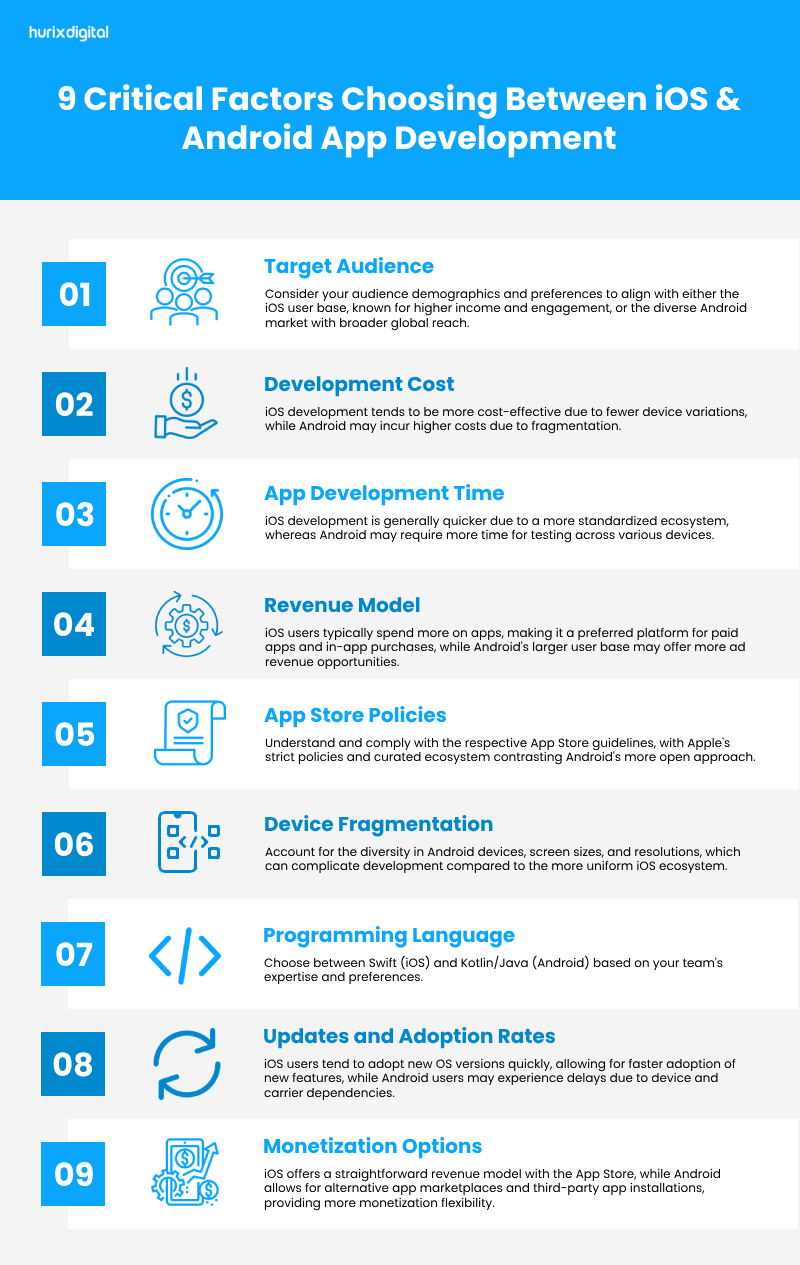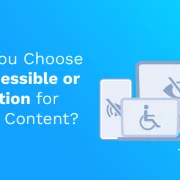Are you at a crossroads in app development, torn between iOS and Android? Deciding can be daunting, but fear not! Here are 9 critical factors to guide your choice. From user demographics to development costs, we’ve got you covered. Dive into the details, make an informed decision, and ensure your app’s success. Don’t miss this insightful journey that simplifies the complex decision-making process.
Curious about what’s best for your app? Reach out to us at Hurix Digital for expert advice. Let’s transform your app development journey together. Contact us now

Choosing Between iOS and Android App Development: 9 Key Factors
When deciding between iOS and Android app development, consider these crucial factors:
1. Target Audience
• iOS: Attracts users with higher incomes and engagement rates
• Android: Offers a diverse market with broader global reach
2. Development Costs
• iOS: More cost-effective due to fewer device variations
• Android: Higher costs due to device fragmentation
3. Development Time
• iOS: Generally quicker, thanks to a standardized ecosystem
• Android: May require more time for testing across various devices
4. Revenue Model
• iOS: Preferred for paid apps and in-app purchases
• Android: Larger user base offers more ad revenue potential
5. App Store Policies
• iOS: Strict guidelines and curated ecosystem
• Android: More open approach with fewer restrictions
6. Device Fragmentation
• iOS: Uniform ecosystem simplifies development
• Android: Diverse devices and screen sizes add complexity
7. Programming Language
• iOS: Swift
• Android: Kotlin or Java
Choose based on your team’s expertise and preferences
8. Updates and Adoption Rates
• iOS: Users quickly adopt new OS versions
• Android: Update adoption may be slower due to device and carrier dependencies
9. Monetization Options
• iOS: Straightforward revenue model through the App Store
• Android: Flexible options, including alternative app marketplaces
Selecting the right platform is essential for success. Consider your target audience, budget, and development resources.
iOS development may be ideal if:
• Your target audience primarily uses Apple devices
• You want a more streamlined development process
• Your app relies on in-app purchases or paid downloads
Android development might be better if:
• You need to reach a wider, more diverse audience
• Your app depends on ad revenue
• You want more flexibility in distribution and monetization
Both platforms offer unique advantages, so weigh these factors carefully. Some developers create apps for both iOS and Android to maximize reach and revenue potential.
Remember, app development is ongoing. Plan for regular updates, maintenance, and user support. Stay informed about trends and best practices for long-term success.



